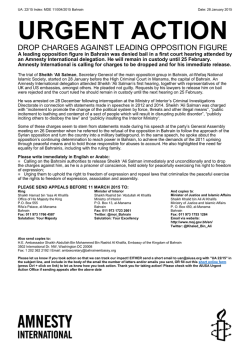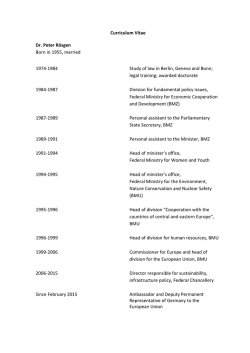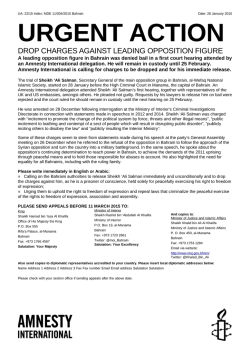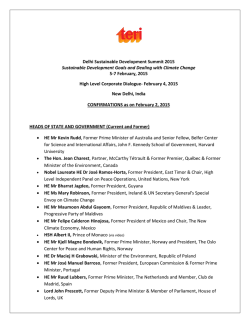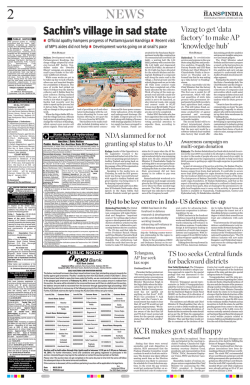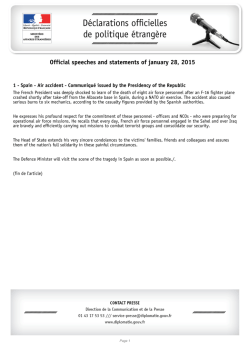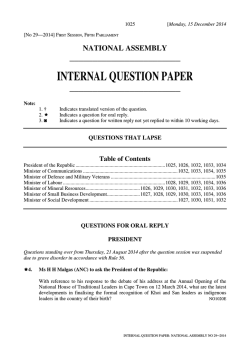
Saudi Arabian oil minister weakened by elevation of
Saudi Arabian oil minister weakened by elevation of king's son Appointment of Prince Abdulaziz bin Salman al-Saud as deputy oil minister will loosen Ali al-Naimi's grip of Saudi Arabia's oil policy Is Ali al-Naimi coming to the end of his 20 years at the top of Saudi oil policy? By Andrew Critchlow, Commodities editor 02 Feb 2015 Saudi Arabia’s oil minister Ali al-Naimi will have breathed a sigh of relief last week when a surprise cabinet reshuffle by the new King Salman bin Abdulaziz al-Saud was announced. The 79-year-old minister’s role was under close scrutiny by analysts and oil traders after the death of the former ruler. Al-Naimi has come under criticism within the kingdom for launching an oil price war that has seen prices of crude slump to below $50 per barrel and rocked the entire global oil industry. Although the new king has left Al-Naimi in his post he has significantly dilluted his power over the nation’s oil policy by promoting his son Prince Abdulaziz bin Salman al-Saud to the position of deputy oil minister, from his previous role as assistant minister. According to insiders in the kingdom this subtle change could have profound implications for Al-Naimi’s future and perhaps signal that he is gradually being ushered out of the seat he has occupied since 1995. As deputy minister and the son of the king, Prince Abdulaziz - who is already a regular attendee at meetings of the Organisation of the Petroleum Exporting Countries (Opec) - will arguably have the biggest say over policy going forward. The change has certainly placed him in the box seat to replace Al-Naimi for the biggest job in oil instead of the other hotly tipped candidate, Saudi Aramco’s chief executive Khalid al-Falih. The role of oil minister is arguably the most important in the kingdom, which is the world's largest exporter of crude retaining the capacity to pump up to 12.5m barrels per day if required. Although no immediate change is expected in Saudi oil policy as a consequence of the decision to name Prince Abdulaziz bin Salman as Al-Naimi's deputy it comes amid profound uncertainty over whether the strategy of allowing oil prices to fall in order to cripple high-cost producers such as US shale will actually work.
© Copyright 2026


